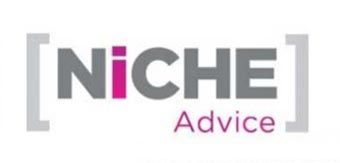
In this article I will cover the most common mistakes and misconceptions I hear from would-be Right to Buy applicants who are looking to use a mortgage to support their aims.
1. Affordability needed to qualify for a mortgage will be easy to meet.
Mortgages are typically taken out for 100% of the discounted purchase price. This will be a fraction of the property value as it is often assumed affordability should be achievable particularly if you’ve always kept up your council rent payments.
The council rent payments are often lower than the mortgage. In fact they are likely to be closer to the interest on the mortgage without factoring in the part of the monthly payment that is going towards the repayment of the debt.
So whilst it will please the Mortgage Lender you have kept up with your council rent it will not solely determine your eligibility for a mortgage as the payments are likely to be higher.
2. I’m earning good money so should be able to afford my Right to Buy.
The make up of your income is really important. Only a fraction of State benefits such as universal tax credit, working tax credits, child benefit and disability living allowances may be used depending on the lender.
Other income such as maintenance may have to be on a court order.
Cash in hand jobs must be permanent with regular deposits made to your bank to coincide with their payment.
Self employed will need to have at least one set of finalised annual accounts.
Extra second jobs may again only be taken in part with a sense check on the hours worked.
3. Family can help out with the affordability.
Unless the member of family are named on the Right to Buy papers and plan to live in property then it’s highly unlikely that the mortgage lender will recognise them in the mortgage transaction.
4. Every property can be used as security of the mortgage.
If the property is a house then you are likely to be fine, flats however can be more problematic and un-mortgageable.
High rises with deck access can prove to be the toughest. Cladding is also a major determining factor in light of recent tragedies. The mortgage lenders will gauge saleability by referencing the percentage of flats already privately owned in the block and when the last one was bought for a comparison of open market value which is the measure they go by rather than the Right to Buy value given on the offer papers.
5. Risk and reward
The difference between a mortgage and a loan is a mortgage is secured against the debt. In simple terms failure to keep up with the payments could result in you loosing the property. That’s right being evicted with no alternative place to live.
Alternatively, non payment of your council rent would probably result in a number of measures to support you and ultimately rehousing to a more affordable dwelling.
However, on the flip side the purchase puts you in control as you will be the homeowner. And as you have received a discount you have also benefited from knowing your asset is worth more than you paid for it and in normal market conditions will continue to rise in value. It could be sold in future and if outside the preemption period (typically 5 years) the discount granted will be free from reclaim by the council. It also could be a legacy for your generations.
6. Age isn’t important
Mortgages will only be granted if the mortgage lender believes you can make the repayments.
As a rule of thumb on a 25 year mortgage the multiple of annual earnings is circa 4.25 times. For example, if you were earning £40,000 x 4.25 = £170,000 maximum mortgage. The multiple can expand or contract depending on whether the term is extended or reduced. The maximum term is determined by the lender but is typically 35 years or when the eldest applicant reaches age 70. This is because the mortgage lenders limit borrowing to the natural working life. There are mortgage lenders that may look to use the youngest applicants age but only if income is sufficient to cover the whole debt on their own.
7. Bad credit history
This will not necessarily prevent you getting a mortgage. The best thing you can do is talk to a professional mortgage broker. For a quick answer make sure you run a credit check and provide your last 2 years council rent statements.




